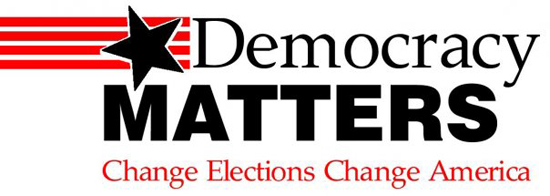College Democrats and College Republicans Go Head-to-Head
Two campus groups debate firearms regulation tonight

Two months ago today, a lone gunman opened fire outside a grocery store in Tucson, Ariz., where a local congresswoman was meeting with constituents. Among the 19 people shot, 6 fatally, was Rep. Gabrielle Giffords, who was shot through the head at point-blank range. (She continues to make slow but steady progress in her recovery). The tragedy triggered an uproar over gun control. Tonight, two campus groups will take on the issue, debating the question Is Stricter Regulation of Firearms Beneficial?”
The debate, part of a series sponsored by Democracy Matters, a student advocacy group that promotes election reform through debates, film screenings, and other campus events, is between the University’s College Democrats and College Republicans. Representatives from the two groups will confront the issue, with Democrats arguing in favor of stricter regulations and Republicans expected to take the opposing view.
“Members of our club tend to believe that control over the sale and use of firearms will benefit the majority of Americans and keep them safe,” says Emily Keller (CAS’13), College Democrats communications director. “Our primary concern with this issue is the safety of Americans, and we believe that stricter controls would help in saving thousands of lives every year.”
The debate is part of an attempt by Democracy Matters to foster discussion among students about critical and relevant issues, says Anthony Scavone (CAS’11), the group’s president.
“We at Democracy Matters wanted to open productive and interesting dialogue,” says Scavone. “The two sides seemed most passionate about this topic, and with the recent Arizona shootings it seemed like a timely discussion to have.”
The Arizona tragedy is not the only recent event to put firearms regulation in the news. The Texas Legislature is currently considering a bill that would allow college students and professors to carry concealed handguns on campus. More than half of the members of the Texas House support the measure, and the state Senate is expected to pass the bill as well. Utah is the only state that currently permits all colleges to allow concealed firearms.
Supporters of the Texas legislation, citing the 2008 mass shooting at Virginia Tech that left 32 dead, say concealed weapons provide the best line of defense in such a situation. Critics, however, say that allowing concealed guns would make college campuses more dangerous, not less.
Those points will be covered during tonight’s debate, which Scavone hopes will elicit passionate dialogue and a respectful tone, as well as a certain level of tension.
“I feel that any tension that arises in these debates ends up being beneficial for everyone in the long run,” he says. “The tension that manifests itself in these environments keeps us on our toes and creates a catalyst for creative ideas.”
Scavone also hopes that tonight’s event sparks plenty of audience participation. Democracy Matters has found in previous debates that allowing an audience to take part in discussion can strike an effective balance between open dialogue and well-researched and structured arguments.
“This debate series is meant to do exactly that—unite our disparate voices, promote dialogue on campus, and make students and the issues we care about matter again,” says Scavone. “Then, eventually, we can move this into the political realm and make our politicians take note.”
The Democracy Matters debate Is Stricter Regulation of Firearms Beneficial? will take place tonight, March 8, from 7 to 8 p.m. in the School of Education, Room 130, 2 Silber Way. The debate is free and open to the public.
Tom Vellner can be reached at tvellner@bu.edu.
Comments & Discussion
Boston University moderates comments to facilitate an informed, substantive, civil conversation. Abusive, profane, self-promotional, misleading, incoherent or off-topic comments will be rejected. Moderators are staffed during regular business hours (EST) and can only accept comments written in English. Statistics or facts must include a citation or a link to the citation.